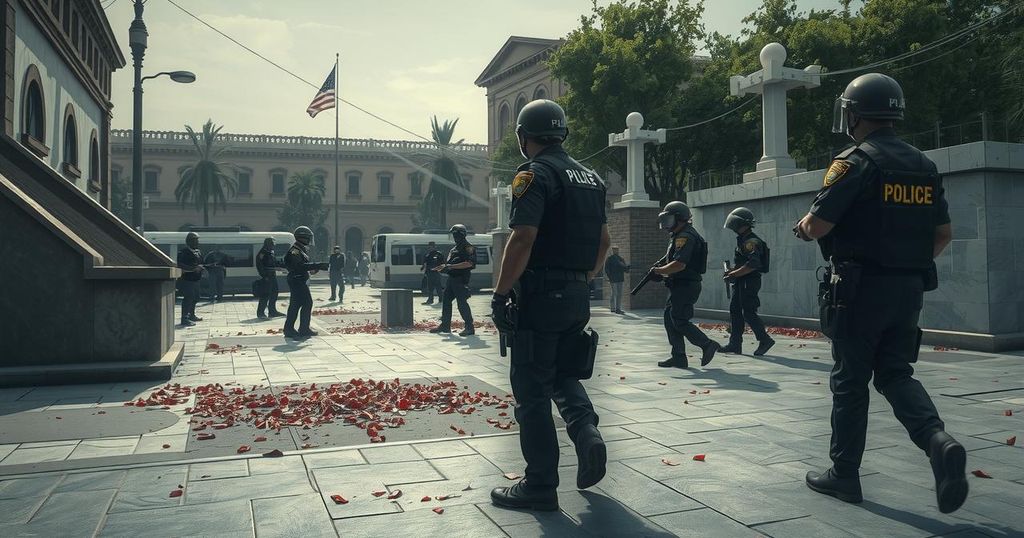Bangladesh teachers protested for the nationalization of private schools, leading to clashes with police that left several injured. The protests, led by the Bangladesh Non-government Primary Teachers Association, highlighted systemic issues in the education sector and the government’s inability to fulfill basic educational needs. A separate protest also involved teachers advocating for improvements in special education infrastructure and resources.
On Wednesday, Bangladeshi police used batons and water cannons to disperse protesting primary school teachers who demanded the nationalization of private schools. The demonstration occurred near the Jatiya Press Club in Dhaka, where at least six individuals, including two women, were injured. The demonstrators were members of the Bangladesh Non-government Primary Teachers Association, advocating for their rights against an interim government led by Chief Advisor Muhammad Yunus.
In their protest, teachers expressed frustration over perceived discrimination and the failure of the government to address their demands. Teacher Liakat Ali noted, “Our demand is the nationalisation of private primary schools. We were marching towards Jamuna, but water cannons were used against us. Why such discrimination?” General Secretary Firoz Uddin highlighted the impact of political vendetta, stating that nearly 800,000 students are deprived of their rights due to bureaucratic complications surrounding school nationalization.
Simultaneously, a separate protest by teachers of special schools for students with disabilities was also suppressed by police. The teachers were advocating for several needs including infrastructure improvements, educational allowances, and mid-day meals for special students. The urgency of these demands reflects the educators’ priorities amidst a backdrop of increased demonstration against government inaction and inadequacies in the education sector.
Recent reports have pointed out the government’s ongoing failure to distribute textbooks to millions of students, further illustrating the challenges the interim regime faces in managing the education system. Overall, the protests serve as a statement against what many see as the government’s incompetence in addressing critical educational reforms.
The protests by Bangladeshi teachers highlight significant issues within the education sector, including demands for school nationalization and improved support for special needs education. The violent response of police underscores the tensions between educators and the government, which is also grappling with systemic failures in its educational policies. These events reveal growing frustration among teachers and students alike over the administration’s handling of vital educational rights and resources.
Original Source: www.thehansindia.com






